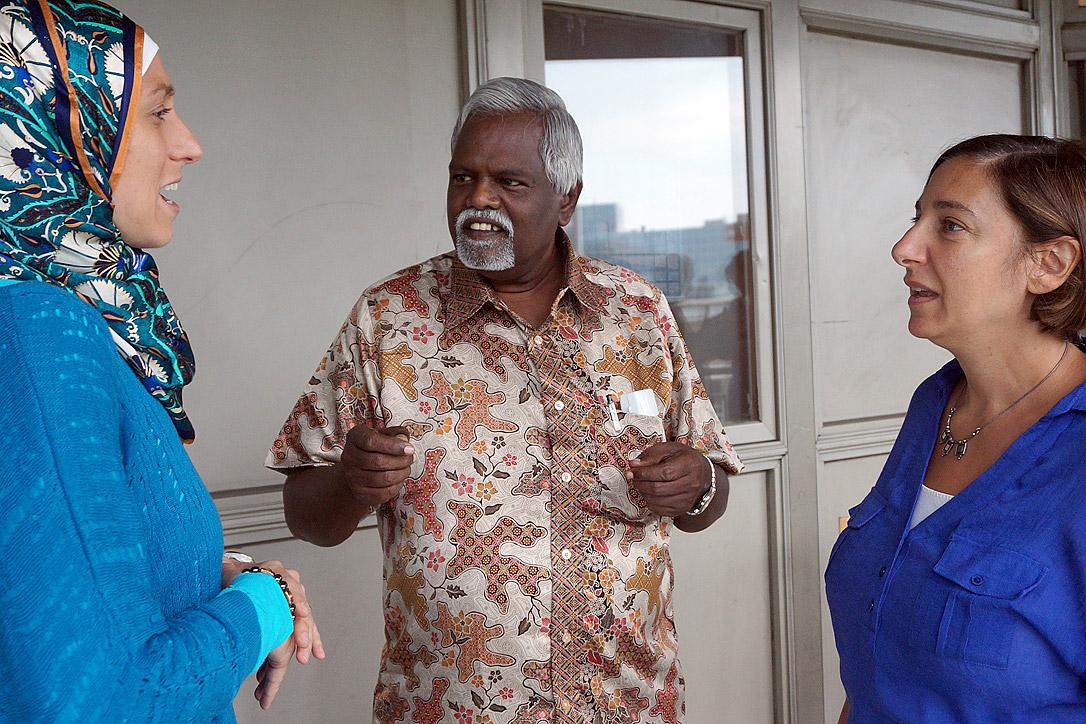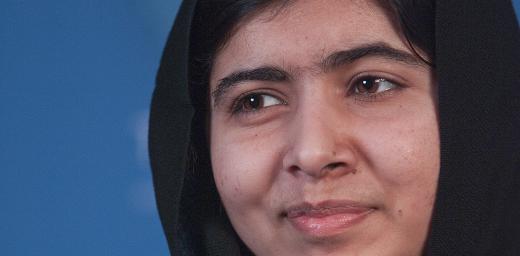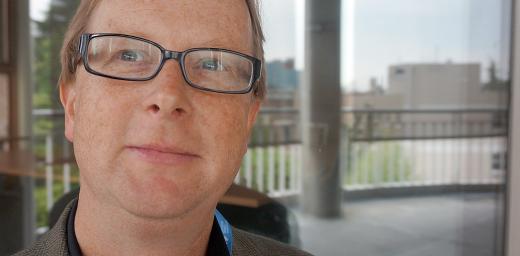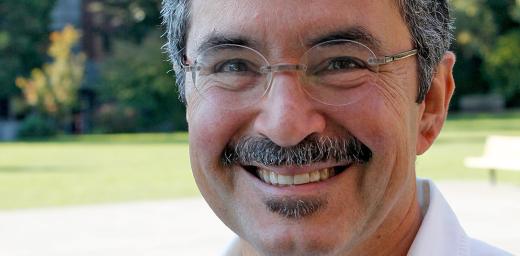Discussing religious identity in an interreligious context

Left to right: Celene Ayat Ibrahim-Lizzio, Busi Suneel Bhanu and Marcie Lenk. Photo: LWF/I. Benesch
By Corey Passons
I recently sat down with Celene Ayat Ibrahim-Lizzio (Islamic Studies Scholar-in-Residence at Hebrew College and Andover Newton Theological School), Marcie Lenk (Shalom Hartman Institute Research Fellow and its director of Christian Leadership Programs), and Busi Suneel Bhanu (pastor of the Andhra Evangelical Lutheran Church, adviser to the Council of the Lutheran World Federation and chairperson of the Andhra Pradesh Christian Council) after they had presented their papers on religious identity during the first session of the international symposium on Religious Identity and Renewal: Jewish, Christian, and Muslim Explorations.
The symposium, currently underway at Seattle University, is cosponsored by the Lutheran World Federation and Seattle University's School of Theology and Ministry. We discussed the advantages and realities of conversation about religious identity and renewal in an interreligious context.
Room to Confront Limitations in Different Contexts
Focusing on the common human origin of those present at interreligious conferences, Bhanu – a Lutheran - submits that starting from a place of shared convergence can be a productive point of departure for understanding and a place from which "we learn from each other and share our issues." He discusses identity in terms of there being "different shades" of commonalities between faiths; some that are shared at the level of the religion and praxis and others that are shared in the area of spirituality. He notes that interreligious encounter allows us to learn theses identities and commonalities across faiths.
Bhanu also spoke from his experience that it is common to confront limitations in interreligious contexts and at some point there is a "no," or a defining limit, within each tradition that becomes essential in terms of preserving identity. Bhanu, a professor of Dalit theology, referred to the historical status of Dalits as "untouchables" in the Indian caste system and commented on how as a Dalit Christian and pastor to Dalit Christians, the concept of being made in the image of God "has been embraced” by his people and is a healing theology in a social structure of division and rejection of Dalit persons.
“The Other” Becomes Human
From the Jewish perspective Lenk noted that even the most seasoned interfaith conveners have preconceptions of "the other" and what religious identity, or identities, "the other" might have; given this reality, she says, it takes work to get to the honest "complexities" of what "the other" is actually experiencing versus an unfounded preconception. For instance, she cites how when there is durable trust in a dialogue and honesty about challenges within a faith tradition shared across religious lines there can be a “profound increase in respect and understanding.”
"The other becomes more human," says Lenk and notes that this ingredient of trust in interreligious dialogue is not only alimentary, but a prerequisite given that religion's most profound missteps and violations are writ large in never-ending cable news cycles and social media. "If we only project ourselves in the very best light no one believes it!” she explains. When these intra-religious challenges and struggles are shared in honesty and trust all parties present "are invited into a deeper conversation." Lenk notes how this "deeper conversation" that is available via interreligious encounter has "made her a better Jew" and "given her tools for her own spiritual practice."
Echos of Other Faiths in Our Tradition
Reflecting on the concept of "indebtedness," Ibrahim-Lizzio cited her own felt need to understand others in interreligious dialogue and encounter and that Muslims are called to know the other as stated within injunctions in the Koran. However, she notes that despite such injunctions, and even her own proclivity to know the other, curiosity is the first step on this path. She "delights in hearing the stories of the New Testament and Hebrew Bible" and when she enters interreligious dialogue she "listens for the echoes in [her] own tradition." Thus through her curiosity and close listening for stories of faith (even from disparate traditions) she hears these "echoes" of convergence in her own tradition and is led back to the notion of indebtedness.
She also commented on encountering diversity during interreligious dialogue in the particularities of language, for example, discussion of human life in "the image of God" as a hallmark of a Christian-dominant semantic paradigm. She says when encountering this diversity she is challenged to look and see if there might be a sense of radical love and recognition of human dignity within a Judeo-Christian metaphor of being made in "the image of God," even if such a linguistic framework is not native to her tradition. If such qualities are extant in the metaphor for Jews and Christians, "then I need to look and see that."
Corey Passons is a member of the United Church of Christ and a Master of Divinity student in the School of Theology & Ministry at Seattle University; he works as a Graduate Assistant for the Interreligious Initiative Program within the School of Theology & Ministry.





